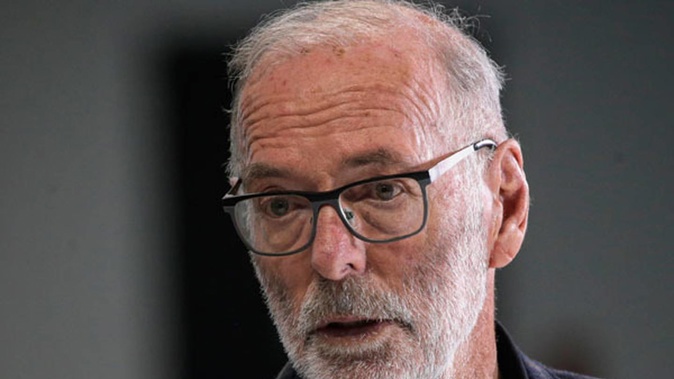
Auckland Mayor Wayne Brown has already earmarked $452,000 to a handful of key advisors, barely two months into his mayorship that pledged to reduce council salaries.
Among the figures are $135,000 to Brown’s key mayoral campaign advisor Mathew Hooton for six months possible work from October 10, 2022, to April 10, 2023.
Former NZ First MP Jenny Marcroft has also obtained an advisory contract from Brown of $37,500 for a few months’ work - from October 13, 2022, to December 23, 2022.
The mayor’s office contracts still need to be invoiced by the four advisors over the next six months for the ratepayer funds to be paid out. But $452,000 has been set aside for the four advisors in the mayor’s budget.
During his election campaign, Brown pledged to slash executive council salaries of over $300,000 by 30 per cent and middle management by 20 per cent.
The figures for Brown’s advisory salaries were released in the October round of Auckland Council’s awarded contracts report.
After clarifying the numbers with Auckland Council, the Herald can reveal the following amounts have been earmarked to four key Brown advisors:
- $135,000 to Matthew Hooton Ltd as a principal advisor and mayoral office transition support - for work from October 10, 2022, to April 23, 2023.
- $37,500 to Jenny Marcroft as a principal advisor in the Office of the Mayor from October 13 to December 23, 2022.
- $280,000 to Pionero Blue Ltd - which representants potential payments to Brown’s former chief of staff and campaign director Tim Hurdle and his wife Jacinda Lean who has been a policy advisor - for work from October 10, 2022, to April 23, 2023.
Auckland Council stipulated “the contract relationship with Pionero Blue has significantly reduced and therefore the full amount provided for will not be paid out”.
Hurdle told the Herald they had so far billed “well south of halfway” of the full $280,000 advisor contract.
/cloudfront-ap-southeast-2.images.arcpublishing.com/nzme/7NXR3LB6OOO5DFL5XRAMR6YTFE.jpg)
New mayor Wayne Brown (centre) entering the Auckland Council building with his adviser Matthew Hooton (left) and the council's head of democracy services, Phil Wilson. Photo / Michael Craig
He said they could theoretically bill the full $280,000 “ ...we worked to the maximum number of hours and did all the work for all six months”.
But the Pionero Blue principal consultant said he thought it very unlikely he would be invoicing for the full $280,000 contract.
“Because I haven’t been talking to them about any ongoing projects and it’s Christmas time and until someone comes and gives me a call and says, ‘I want you to do a few things’, which is very unlikely to happen in the next month,” Hurdle said.
“You can’t claim for work you haven’t done. Something about being a contractor is we don’t get holiday pay or holiday leave so I’m not getting paid now that I’m not working. If I was on leave, if I was an employee I’d get paid leave right.”
The Herald approached Brown’s office for comment about the appropriateness of these advisor salaries.
Hooton, who was appointed as head of policy and communications for Brown during his campaign, was asked whether such short-term contract salaries were consistent with Brown’s campaign pledge to reduce council salaries.
He did not offer comment, nor did anyone from Brown’s mayoral office.
Instead, clarity on the figures was supplied by the Auckland Council media team.
A comment on how Brown’s advisor salaries match previous mayors’ offices was supplied by Auckland Council governance director Phil Wilson.
“We are currently in a transition period with the establishment of the new Mayoral Office so it is difficult to make a direct comparison with the previous office,” Wilson said.
“However, when settling on the transitional contract arrangements we have been guided by the agreed salary bands for senior roles in the Mayoral Office structure.”
/cloudfront-ap-southeast-2.images.arcpublishing.com/nzme/CIBKFDAPUVAX3A2CEBSHNOLGSU.jpg)
Auckland Mayor Wayne Brown says councillors should resign if they don't agree with his decisions on their roles. Photo / Auckland Council
On September 15, in the thick of his campaign, Brown said if he became mayor, he would instruct council chief executive Jim Stabback to cut the staff bill for officers earning more than $300,000 by 30 per cent.
He also claimed he would cut middle management salaries by 20 per cent and lower management by 10 per cent.
“The traditional way to cut costs in organisations is to ask the chief executive to cut costs. Typically they cut people at the bottom and with it go the services. There is no oversupply of people fixing potholes and taking away rubbish and doing the things people expect their rates to go to, but definitely an oversupply of people in upper and middle management,” Brown said.
On December 9, a media statement from Brown’s office announced Auckland Council faced a $295 million budget hole.
A Mayoral Proposal was announced on December 9 which included a target of $60 million in operational savings at Auckland Council including discontinuing the direct provision of Early Childhood Education.
“It is my view that this is not the role of the Governing Body. Local Boards should consult with communities on whether early childhood education should continue being provided as a direct service or something else and, if not, what the transition to a different model should look like,” Brown said.
Following the election, Brown was cagey about the specific hours he will commit to the job of leading the Super City, saying “it’s nobody’s business”.
When the Herald put it to him that most people would regard his salary of $296,000 as large, the businessman said: “It’s not to me.”
Take your Radio, Podcasts and Music with you









